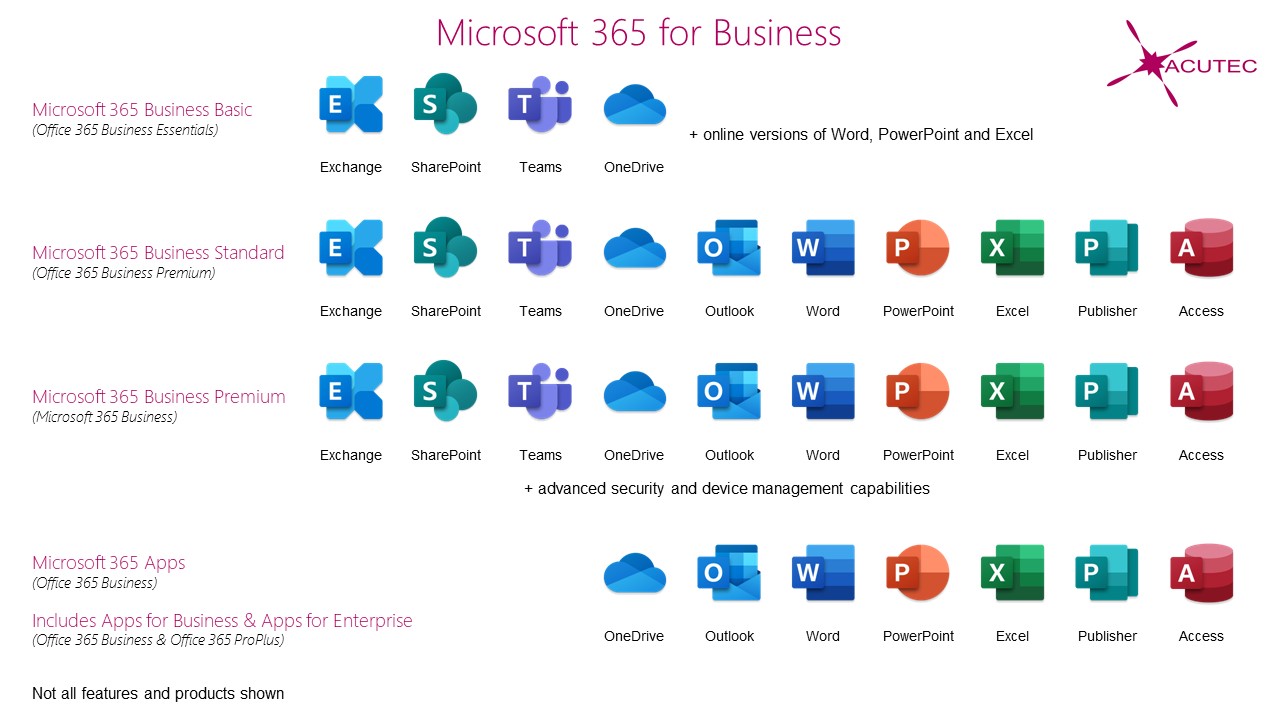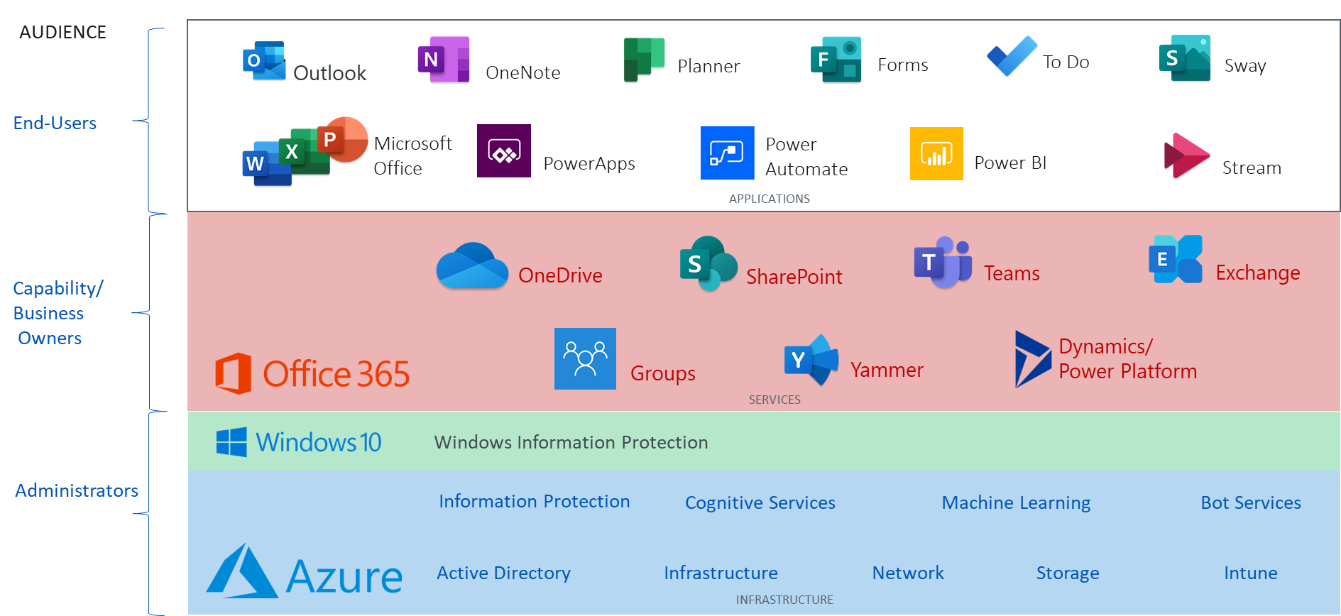

However, E3 and E5 plans come with 1TB OneDrive cloud storage plus 10GB storage per license. The F3 tier comes with 2GB OneDrive personal storage. More significant differences are between Microsoft 365 Apps for Enterprise tiers. There are also options for external sharing and sharing permissions to help manage security. OneDrive and SharePoint files are accessible and synced across devices. The F3 tier comes with a 2GB mailbox, Outlook is web-only, and there’s also no integration for Outlook or voicemail.Įach tier in Microsoft 365 Apps for Business includes 1TB OneDrive cloud storage. Admins also benefit from anywhere access to set up new emails, restore deleted accounts, and create custom scripts.įor Microsoft 365 Apps for Enterprise, E3 and E5 tiers come with a 100GB mailbox, Outlook desktop client, email archiving, and Microsoft Bookings, online booking, and scheduling app. Features include scheduling, availability, and reminders. Users can also manage appointments using a shared calendar. There’s also Exchange for business-class email on the phone, tablet, desktop, and web. The three tiers within Microsoft 365 Apps for Business (Basic, Standard, Premium) offer users a 50GB mailbox. Access and Publisher are only available on desktop, so if you need either of these apps, you’ll need a plan that isn’t Basic or F3.

However, only Standard and Premium (Business) and E3 and E5 (Enterprise Office 365) also include desktop versions. Users can have these apps available on up to 5 phones and five tablets (iOS and Android). So first, let’s examine some of the more familiar offerings: Office appsĪll three tiers in Business and Enterprise come with web versions of Outlook, Word, Excel, PowerPoint, and OneNote. Others are partly included, with caps on usage or limits on the types of devices. Some Microsoft apps, tools, and features are included across all three tiers in both Business and Enterprise. Microsoft 365 Business vs Enterprise: Exploring the familiar Microsoft 365 apps Source: Microsoft 365 Enterprise Plans: There’s a $24 jump between F3 and E3, and a $25 jump between E3 and E5 Today, these changes mean you can choose from Basic (formerly Office 365 Business Essentials), Standard (formerly Office 365 Business), and Premium (formerly Office 365 Business Premium).

The company said the changes were made to represent ‘our vision for the future of Microsoft productivity tools – an integrated set of apps and services that puts artificial intelligence (AI) and other cutting-edge innovations to work for you.’ That was until Microsoft embarked on a rebrand in early 2020. Microsoft 365 Apps for Business PlansĪt this stage, it’s also worth mentioning Microsoft 365 Apps for Business was formerly known as Office 365 Business. Which means you actually have a choice of six plans. Within the two options of Business and Enterprise, there are three tiers. Two versions of Microsoft 365 Apps, three types of plans You’ll also discover what sort of infrastructure you should put in place to ensure everything is secure. In the end, you’ll have a clear picture of which version is best suited to you and your Business (or Enterprise). That’s because there are clear differences between Microsoft 365 Apps for Business and Microsoft 365 Apps for Enterprise.īelow you’ll find an in-depth exploration of each plan. Published in: Office 365 & SharePoint Onlineīusiness and Enterprise – two words often used interchangeably in everyday life, except when it comes to Microsoft Apps.

Home > Blog > Office 365 & SharePoint Online > The Microsoft 365 Apps Decision: Business or Enterprise The Microsoft 365 Apps Decision: Business or Enterprise


 0 kommentar(er)
0 kommentar(er)
